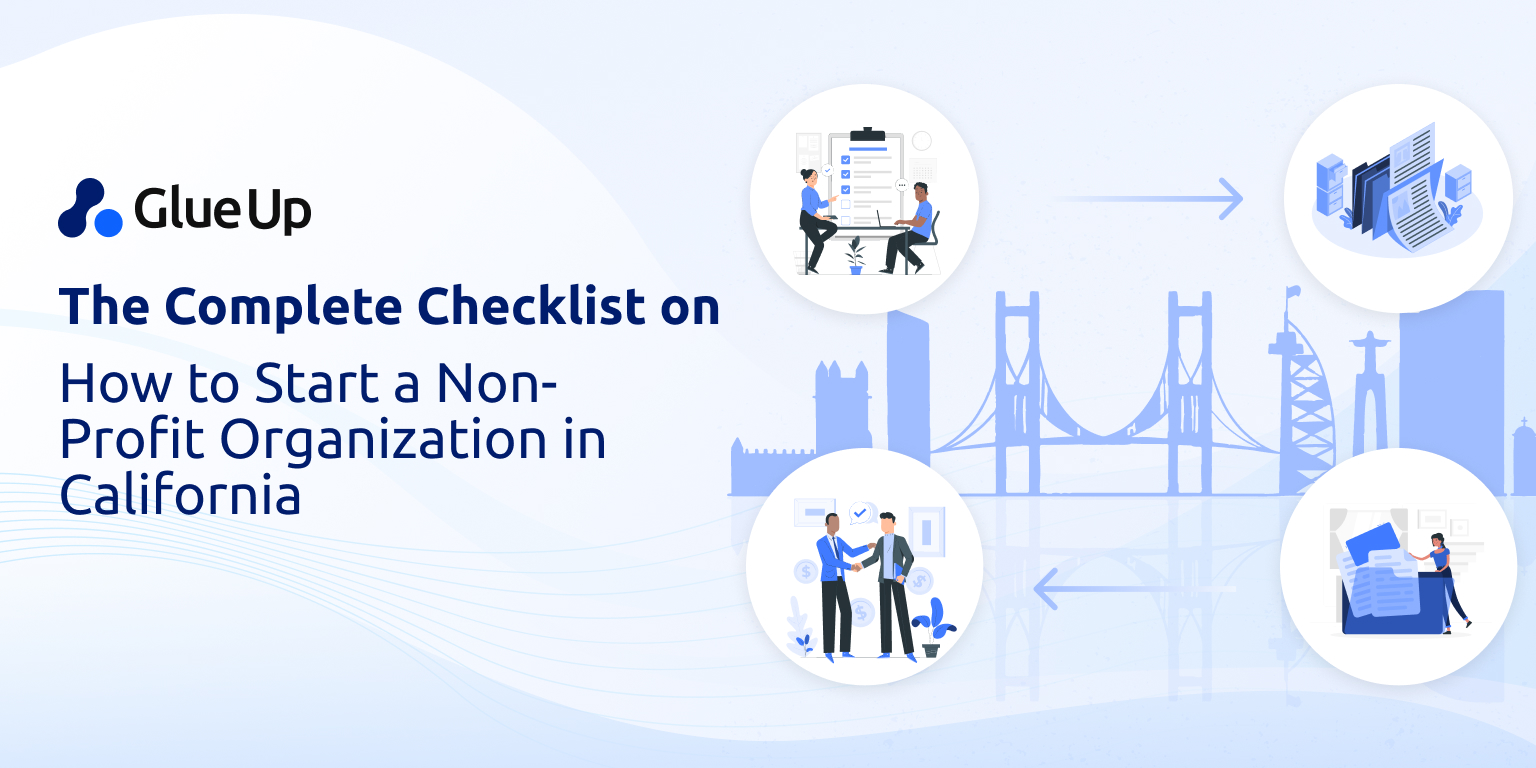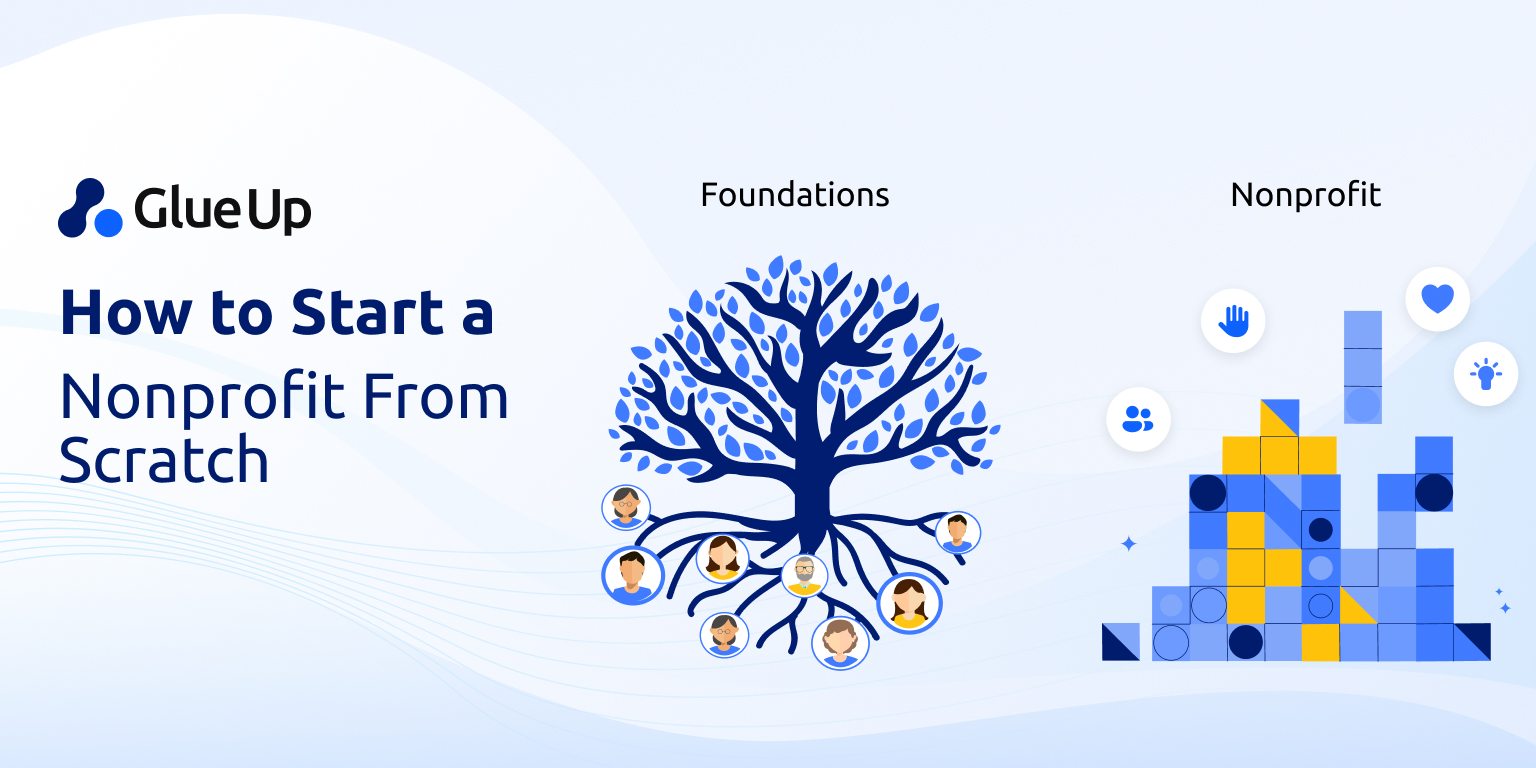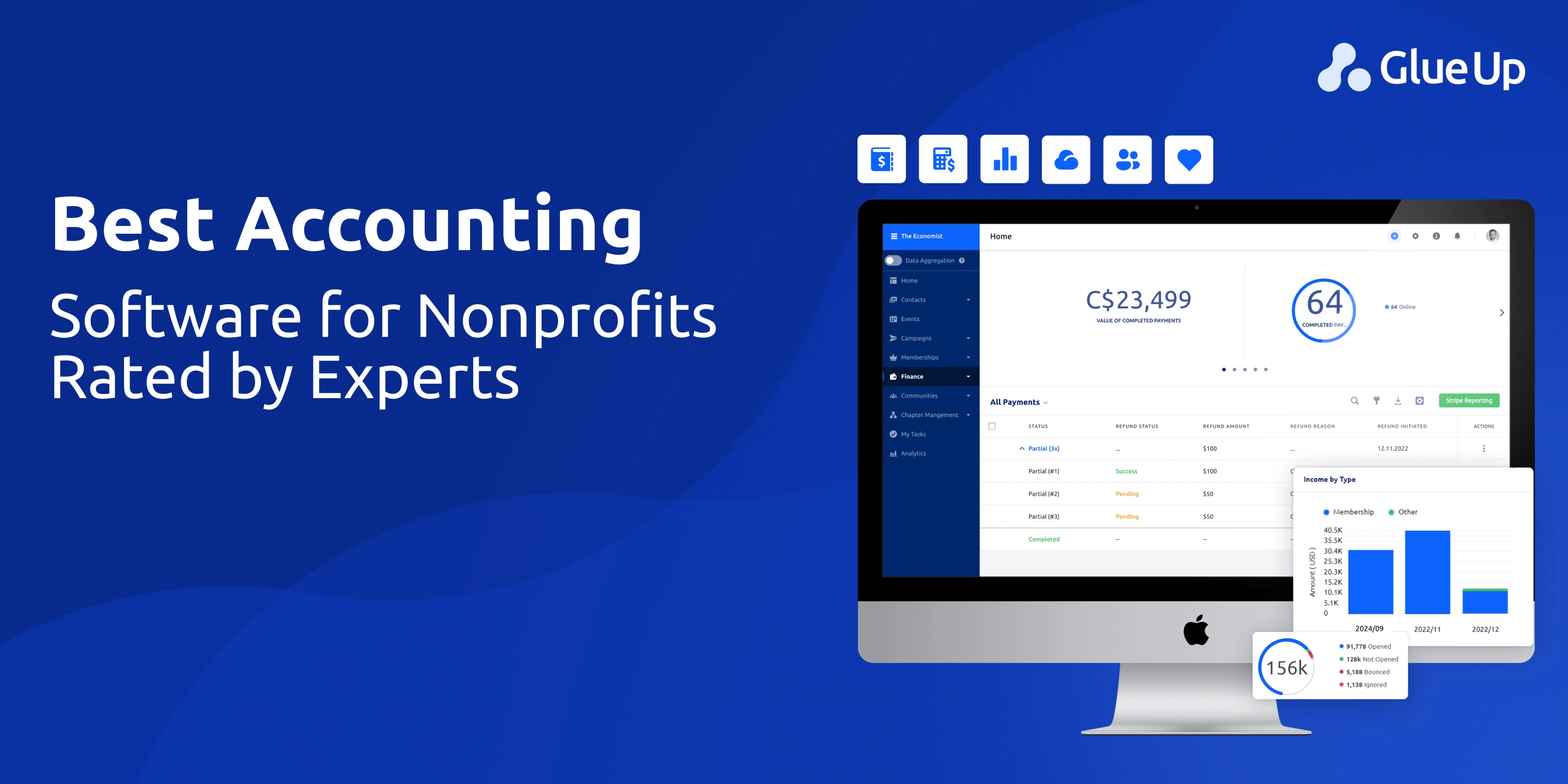![Articles of Incorporation for Nonprofits: [Template Included] Articles of Incorporation for Nonprofits: [Template Included]](/sites/default/files/image_1580.png)
Do you know that the articles of incorporation are the most important legal documents for nonprofits, yet 90% fail to get them right the first time? As a result, they make numerous amendments, wasting their valuable time and resources.
That doesn't mean you can't get them approved in your first attempt. In this article, we will guide you step-by-step on how to draft your articles of incorporation for non profit, what contents you should add, and how to write each element according to the IRS requirements.
We have also added a downloadable template in the end so that you can use it to seamlessly draft your articles of incorporation.
Quick Reads
- What Are the Articles of Incorporation?
- Why Are the Articles of Incorporation Important for Nonprofits?
- What Should Be Included in Articles of Incorporation for Nonprofit?
- Are There Any Other Steps I Need to Take?
- Get Your Free Nonprofit Article of Incorporation Template!
What Are the Articles of Incorporation?
The articles of incorporation are the papers submitted to the government for the legal formation of an organization. The process of drafting, submitting, and getting it approved by the state is known as incorporation.
The articles of incorporation are the foremost requirement for forming an NGO and are submitted to the secretary of state to register your organization in the state’s record. Since all NPOs apply for tax exemption, the IRS also requires it to prove your nonprofit status.
Each country has its guidelines and fee for creating the articles of incorporation. Depending on the state, the filing fee in the US ranges from $100 to $250. In some states, the articles of incorporation are also known as 501c3 articles of incorporation, certificates of formation, or even charter documents.
Are Articles of Incorporation and Bylaws the Same Thing?
The articles of incorporation are often confused with another legal document, “by-law” but there is a significant difference between them.
The 501c3 articles of incorporation describe the purpose of your NPO, while a by-law describes how your nonprofit will carry out its day-to-day operations.
They also differ greatly in terms of their contents. The corporate charter contains detailed information about an organization and its members, such as name, address, mission, directors, and registered agent. On the other hand, bylaws define guidelines to manage their operations such as recruiting team members, selecting board members, and initiating new projects.
Why Are the Articles of Incorporation Important for Nonprofits?

- The articles of incorporation 501c3 are the primary document required to form your NPO. They register you with the government, explain the purpose of your organization, and determine your board of directors.
- The IRS only approves your tax exemption if your articles of incorporation are approved by the federal state. Therefore, they are the foremost requirement for seeking tax relief.
- The articles of incorporation are public documents. Once you get it approved, you can show it to your lead sponsors for getting more donations
In order to cut costs, many NPOs operate virtually while registering in countries with the lowest filing fees. This can cause problems later on.
It is important that your NPO is registered in the district where you are offering major programs or services to receive tax exemption from the IRS there.
What Should Be Included in Articles of Incorporation for Nonprofit?
The articles of incorporation are different for each country and state. Most of them, however, include the same elements mentioned below.
Make sure you include all components step by step according to the guidelines given below:
1. Name of Your Nonprofit Entity
The articles of incorporation begin with the name of your nonprofit entity. Choose a name that is not already registered with the state. This is particularly important as the government does not allow two businesses to be registered with the same name.
Also, you must make sure to comply with the following state laws when writing the name of your organization in the article:
i) Abbreviations Inc. or Corp.
In some states, you are required to add a designator to your organization’s name such as Corp. or Inc. For example, if your name is Pet Shelter, you might have to add Pet Shelter Corp. or Pet Shelter Inc.
Some states consider nonprofits as a corporation (Corp.) and do not require you to add the designator with the name. Make sure you know what the law is in your state before adding this part.
ii) Don’t Use Words That Suggest an Alliance With Some Specialized Firms
Avoid using words that predict your association with some federal or legal bodies like National, Federal, US, Syndicate, Trust, Republic, or Cooperative. Also, don't use terms that make you look like a profitable business such as Bank, Doctor, or Lawyer.
2. Nature of Your Organization

All articles of incorporation include the nature of the business, for example, a nonstock corporation, nonprofit, or a Limited Liability Company (LLC). For an NGO, you mention that your organization is nonprofit with its sole purpose belonging to the public benefit.
The Internal Revenue Service (IRS) will check if your article contains the following three points:
- The nonprofit will only benefit charitable causes
- Earnings will not be used for personal benefit
- Assets of the nonprofit will not be distributed to the owner or the directors upon dissolution
Overall, the IRS wants to see that your NPO is formed for public benefit, not to benefit yourself. You have to mention the exact language provided by IRS in your article while drafting these elements. (provided in the template)
Make sure that your supporting documents support the points given above. Mentioning the type and structure of your NPO (such as charity, hospice, healthcare, or pet shelter) will get you a strong base to get the draft accepted, by both secretary of state and IRS.
3. Address of Your Nonprofit Principle Office
According to the law in some states, you are required to mention the address of your NPO head office.
You can also use a virtual address for your NPO in case your organization runs globally or you do not wish to maintain a permanent location in one state. However, refrain from using P.O Box as your main address in the article as it goes against the laws of many states.
4. Contact Details of Your Registered Agent
A registered agent is a person who receives official documents on the behalf of your organization. His/her location is used as a primary address to send or receive tax notices, annual reports, and notice of litigations. The articles of incorporation require you to mention the details of your registered agent such as his/her name and address.
In most cases, the address of the registered agent is different from the main office, but it can be the same in scenarios when the nonprofit officer is acting as the registered agent.
It is important that your registered agent lives in the same state where you are filing your articles of incorporation. If your business operates in another state, you will have to find the agent in the same state as your incorporation. Also, he/she has to be available during office hours to receive and sign documents which makes a virtual address non-suitable for them.
5. The Duration of Your NPO
Some laws of incorporation necessitate mentioning the life of your NPO. Since most organizations don't have a specific expiration date, they prefer mentioning perpetual or perennial.
6. Contact Details of Incorporators
You will have to mention the names and signatures of all the incorporators in your article.

An incorporate is the undersigned of the charter document who is involved in preparing and registering the article with the government. Depending on your organization, you can have one or more incorporators.
7. Contact Details of Your Board of Directors
This is a crucial component to make your draft look appealing as the directors are the strategic backbone for an NPO. The board of directors is responsible for making strategic and financial decisions for your organization. Hence, you should make sure that your board members have good communication and fundraising skills with diverse experience in strategic management and handling money.
The articles of incorporation require the names and addresses of the directors (also known as superintendents). The number of directors required for the NPO depends on your state. Also, you can change the names of the directors later by submitting a restated article of incorporation for nonprofits.
8. Purpose Statement
Nonprofit articles of incorporation include a statement of purpose stating the goal of the project. The statement of purpose states why your project deserves a 501c3 tax exemption.
The statement of purpose in your document will use the exact language as mentioned by IRS given below:
“Said corporation is organized exclusively for charitable, religious, educational, and scientific purposes, including, for such purposes, the making of distributions to organizations that qualify as exempt organizations under section 501(c)(3) of the Internal Revenue Code, or the corresponding section of any future federal tax code.”
9. Additional Members (if any)
Many companies have additional stakeholders who take part in the major decision-making. For example trustees, voting members, or any other clubs involved in decision making. However, we suggest you restrict decision-making only to your board members. Adding extra members will only complicate your organizational structure.
10. Other Points to Highlight Your Nonprofit Standing
IRS suggests including the three elements to highlight your organization as NPO. The points should be included separately, with each containing a clear paragraph in the formal language. (given in the template)
i) It Is a Not-For-Profit Organization
This section will state that your organization will not use any part of the earnings that will be distributed to the members, trustees, or other stakeholders except for the compensation to the employees.
You will also include that the property your organization owns is solely restricted for public benefit and non of its part will be used for business or profit.
ii) Will Not Participate in Any Forbidden Activity
In this element, you will specify that none of your organizational activities will carry propaganda or benefit any particular political campaign. Also, the corporation’s activities shall not be dominated by propaganda or any other act aimed at influencing legislation.
iii) The Assets Will Be Distributed According to 501c3 Rules in the Event of Dissolution
Businesses usually start as nonprofit and then distribute assets among themselves upon dissolution. Adding this statement is compulsory as it will show IRS that you comply with the rules on all levels.
The section will highlight that in case of dissolution, you will distribute the assets to the government or federal bodies to be used for public benefit.
11. Amendments (Reinstated Article of Incorporation)
The articles of incorporation are amended under two following conditions:
- It gets rejected the first time: Your article can get rejected in case it does not comply with the IRS requirements for tax exemption. In such a case, double-check your statement of purpose, nature of your NPO, and supporting documents.
- The organization's structure changes after its approval: You will make amendments in case your organization gets restructured such as changing your registered agent or directors. In such a scenario, the changes will have to be approved by 2/3rd of your board members to include them in the article.
Amending the articles of incorporation is hectic and costly. Therefore, be sure you take the right steps when making your initial decisions and article of incorporation.
Are There Any Other Steps I Need to Take?
Once you are done with your draft, make sure you do the following things to take your organization off the ground.
1. Check Your State’s Website to Check the Article Requirements
As mentioned earlier that every state has its requirements for issuing the certificate of incorporation. For example, some states necessitate you to mention statement of lawful purpose or statement of specific purpose in addition to the “statement of purpose”. In such instances, you can find the language, citation, and even templates on the government websites. Also, some states require you to draft your document in a particular font, alignment, and spacing. To ensure that you don't miss any important information, check your state's laws before you write an article. You can also take a professional lawyer’s help from your state in this regard.
2. Do Name Research
The government does not allow two organizations to be registered under the same name. Therefore, double-check the name you have selected for your NPO. Each state has a dedicated page for checking if the business name is already taken. Also, there are several business name generator tools you can use to find a unique name for your business.
3. Create a By-Law for Board Members
After you draft your articles of incorporation, you will make a by-law statement for your team members. This will act as the guideline for your organization to outline the laws and regulations to be abided by. In some cases, you will have to submit it along with your articles of incorporation.
4. Bring Your Stakeholders on One Page
Bringing your board members on one page is important both before and after the article of incorporation. They decide what programs will be implemented, what budget will be required, and how funds will be raised.
Most organizations follow the traditional way of board meetings where they meet weekly or monthly for discussion and planning. However, you can take a step ahead by connecting your team on a virtual platform like Glue Up.

Glue Up is a cloud-based software that upholds nonprofits in several ways. If you are looking for a platform that can bring your communities together, create fundraising events, form surveys, and connect with your board members, book a demo of Glue Up CRM software.
5. Start Your Fundraising
After you get your article of incorporation approved, it is now time to start your fundraising. You can try unique fundraising ideas to collect more money for your projects or do paid marketing campaigns. Don't forget to check the budget for each fundraising campaign to ensure that you don't exceed 15% of your fundraising goal. You can also check out content marketing strategies to reach the right prospects.
Get Your Free Nonprofit Article of Incorporation Template!
We know that creating the corporate charter from scratch is not easy for everyone. This is why we have included a free template for you.
Click here to download the template
You can format it according to the description of your organization and state’s law. Don't forget to fill out the blank fields in the template with your nonprofit details.



